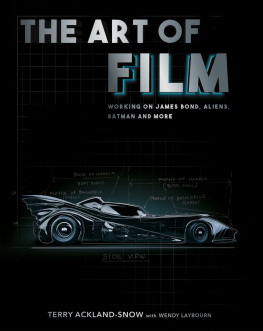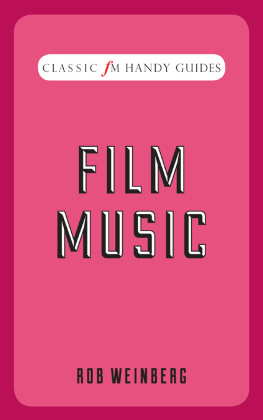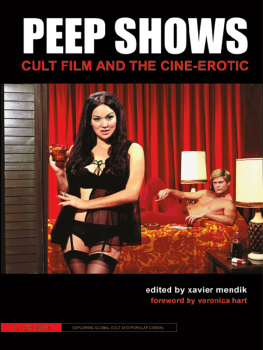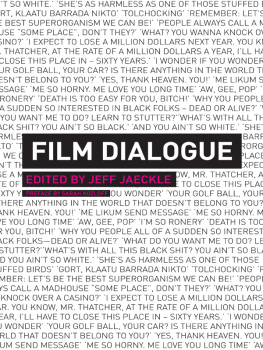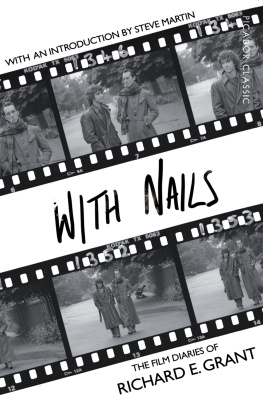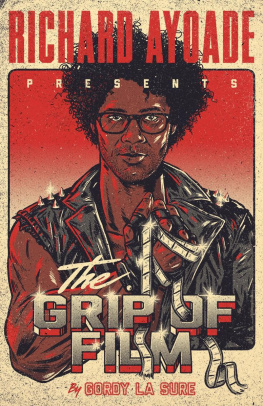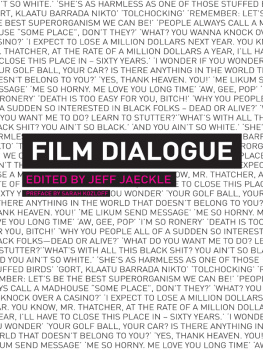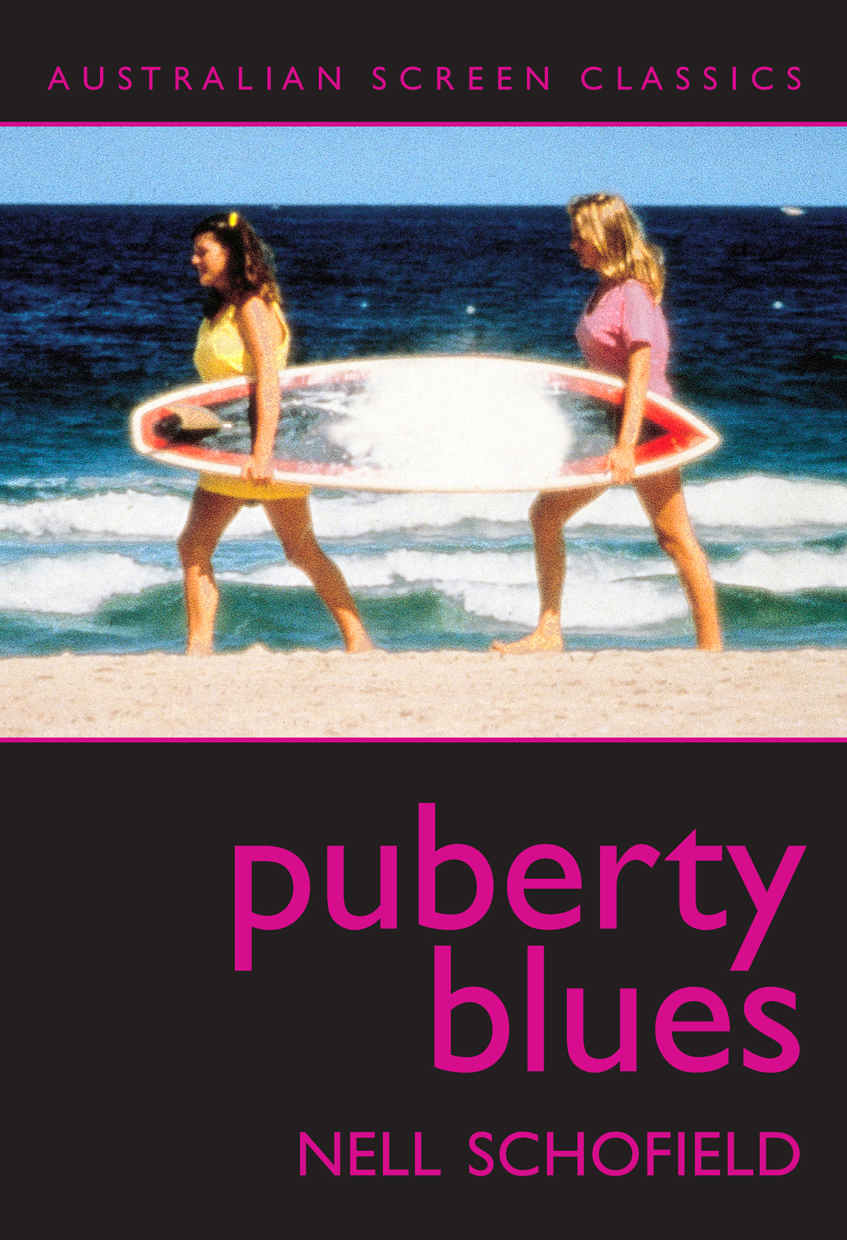nell schofield
Nell Schofield presents films on the subscription television channel Showtime and writes about classic movies for Melbournes Sunday Herald Sun. A graduate of NIDA, she has worked as an actor as well as reporting on the arts for organisations such as ABC TV, ABC Radio National and CNN International. She is the female voice on ABC TVs Media Watch and is contemplating writing a film script tentatively titled The Revenge of Freda the Moll.
AUSTRALIAN SCREEN CLASSICS
JANE MILLS
Series Editor
Our national cinema plays a vital role in our cultural heritage and in showing us what it is to be Australian. But the picture can be blurred by unruly forces including competing artistic aims, inconstant personal tastes, political vagaries, constantly changing priorities in screen education and training, and technological innovations and market forces.
When these forces remain unconnected, the result can be an artistically impoverished cinema and audiences who are disinclined to seek out and derive pleasure from a diverse range of films.
Screen culture, of which this series is a part, is the glue needed to stick these forces together. Its the plankton in the food chain that feeds the imagination of our filmmakers and their audiences. Its what makes sense of the opinions, memories, responses, knowledge and exchange of ideas about film.
Above all, screen culture is informed by a love of cinema. And it has to be carefully nurtured if we are to understand and appreciate the aesthetic, moral, intellectual and sentient value of our national cinema.
Australian Screen Classics will match some of our best-loved films with some of our most distinguished writers and thinkers, drawn from the worlds of culture, criticism and politics. All we ask of our writers is that they feel passionate about the films they choose. Through these thoughtful, elegantly-written books, we hope that screen culture will work its sticky magic.
Jane Mills is an Honorary Associate of the Art History and Theory Department at the University of Sydney, Senior Research Associate at the Australian Film, Television & Radio School, a Board Member of the Sydney Film Festival and is the recipient of a scholarship at the Centre for Cultural Research, University of Western Australia.
acknowledgments
Love and thanks to Jane Mills who breathed deeply and pushed until this bun came out of the oven without too much toxic green icing. Thanks also to Margaret Kelly, Kathy Lette, Gabrielle Carey, Bruce Beresford, Don McAlpine, Geoffrey Rhoe, Daniel Mudie Cunningham, Unjoo Moon, surfie chicks Meagan Edwards and Victoria Manaro, Rosemary Curtis, Emma Blomfield, Darren Mansfield, Elizabeth McMahon, Lesley Speed, Germaine Greer, ScreenSound Australia, Greg Gurney (Scragdaddy), Jad Capelja, Craig Hassall and Boomi.
Nell Schofield, 2004
illustration acknowledgements
Thanks for permission to reproduce the following images:
Umbrella Entertainment
| The Greenhills Gang boys. |
| Debbies famous pigtails. |
| Director Bruce Beresford with the surfie chicks. |
| Nell Schofield as Debbie. |
| Smokin down the dunnies. |
| Sue and Deb hit the bottle. |
| Saturday night down at the mall. |
| Gary and Deb at the bar, as featured in The First Time video clip. |
| Debbie thanks Gary for the friendship ring. |
| One of the most dramatic images of the film: the beach funeral. |
| On set of the movie that reflects the consequences of the co-education system. |
| The triumphant surfie chicks. |
Limelight productions (sourced from ScreenSound Australia)
| The Greenhills Gang girls rooting for their boyfriends. |
| The Spanish poster for Puberty Blues. |
| Shaking off the puberty blues. |
| On the set of Puberty Blues. |
Nell Schofield
| Retro Surfie Scrag: the look du jour. |
| The first rite of initiation. |
| Deb and Gary at the Mackerel Beach Hilton. |
| Debbie feels it inside her. |
For Simon Drakeanother young film star who lived to tell the tale.
SURFIE SCRAG
Its something Ill never live down. Practically every week over the past two decades or so somebody comes up to me and mentions it: You were in Puberty Blues! Oh my God! That film changed my life! Not only that. These freaks know all the best lines, like fish-face moll, rootable and youre dropped. And its not just women of my generation who flip out over the film. I recently interviewed an all-male rock band with serious street cred and the guitarist could hardly answer my questions because he was so busy raving about how cool he thought the film was. The other day a fifteen-year-old girl went all weak at the knees when she met me and her mother had to explain that the kids regularly hold Puberty Blues parties. As do older folk.
It seems that dear old Pubes has even become something of a fashion statement. Not long ago I was walking past one of those trendy street-wear stores and did a double-take when I saw a silhouette of myself and co-star Jad Capelja printed on a sexy little T-shirt with a handbag and wallet to go with it. I went in immediately to buy the matching beach towel as a souvenir. Twenty years on and a photo of two girls in the sand dunes, one carrying a surfboard, is the height of teen chic. Retro Surfie Scrag, it would appear, is the look du jour.

So why does this particular Australian film continue to strike such a resonant chord with so many diverse people? Is it the fact that it presents a youth sub-culture that they can all relate to? Is it the language, raw as a radish and unashamedly Australian, that people find so endearing? Perhaps its just a time capsule of Australian life in the late 1970s that people both embrace and are repelled by at the same time. Or maybe its the triumph of the underdog that ultimately wins them over, that classic story arc which sees the protagonists reject peer group pressure in favour of individualism? Here are a couple of factoids to mull over: Puberty Blues is listed number 41 of the top Australian films and number 17 (along with Gallipoli and The Sum of Us) on the list of Top Rating Australian Feature Films screened on television. But it seems the film has moved beyond these statistics into a realm that borders on cult.
Obviously there are creative technical factors that contribute to the movies durability too, not the least of which being the crafty direction by Bruce Beresford and lensing by his acclaimed colleague, Don McAlpine. These two men had worked together on The Adventures of Barry McKenzie and the follow up, Barry McKenzie Holds His Own, both celebrations of bad blokey behaviour and peculiar Aussie vernacular. The pair also collaborated on


